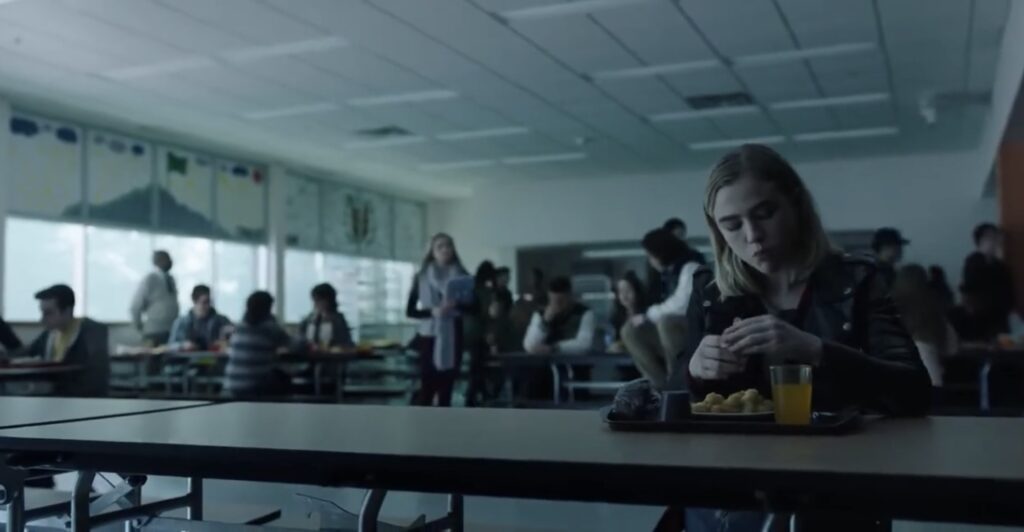In Impulse Unraveled, the episode New Beginnings is anything but hopeful. Here, “beginnings” feel more like fractures in the timeline — jagged openings to places we should never go. The shadows between truths and lies bleed together, and the past refuses to stay buried. Every word, every act, ripples across unseen dimensions, dragging the guilty and the innocent alike into the same pit.
Clay Boone knows something no one will believe — Henry can teleport. But the Boone name is poison now, rotted by Bill Boone’s imprisonment for drug trafficking. In Reston, the Boone legacy is a ruin, and no amount of truth can save it.
Henry insists Lucas Boone murdered Amos Millar. But this death didn’t materialize in a vacuum — it was a slow-growing rot. If Henry hadn’t lied to Bill Boone, if she hadn’t set events in motion that led to Clay’s suffering, perhaps Amos would still be alive. In this moral labyrinth, she’s just as responsible as Lucas.

Henry turns on Clay, stripping away whatever protection he thought he had. No allies left. No walls to hide behind. The whole town knows now — and they’ll never see Clay the same again.
Townes calls Henry a superhero, but she’s nothing like the kind worshipped in comics. She does drugs, she harbors a deep disdain for people, and she treats admiration like a disease. Praise doesn’t lift her; it contaminates her.
The episode swerves into existential darkness — crossroads where faith and futility collide. Are we merely physical beings, or something else entirely, caught between God’s purpose and the void?
Henry confesses to her mother that Clay didn’t rape her — a revelation that undoes the screaming accusations she once hurled at him in a rage. She knows the police won’t charge him, and she knows they can’t be forced to. The law itself — bound by the Constitution’s supremacy clause — protects their discretion. Justice here is a choice, not an obligation.
Meanwhile, the FBI and DEA forge their own devil’s bargain with Bill Boone, using him to entrap the Mennonites in fentanyl sales. When they move in, they strip him of everything — seizing assets, freezing accounts. But a new legal precedent could give it all back to him if the value seized exceeds the fines. And so, without a single charge filed, Bill Boone walks free.
Jenna’s hands are still red with memory — she stabbed Nikolai, and now she fears his return. But Henry greets her dread with a cold, knowing calm. This is the game, she says without words. The game of being a teleporter.
Clay pleads with Bill to believe him — that Henry pulled them from a burning house and dropped them into her own home in the blink of an eye. Bill won’t have it. His son’s truth is a fantasy in his ears.
Deputy Anna, meanwhile, uncovers a damning clue in the Amos Millar case — Amos’s Bible, hidden in plain sight in Mrs. Millar’s home, last seen in Bill Boone’s possession before his house burned. She could charge Mrs. Millar, but she doesn’t. Her silence speaks louder than the law.
And in the shadows, Lucas Boone is being hidden by Mrs. Millar and the Mennonites, even as an all-points bulletin screams his name for Amos’s murder.
But there’s a greater horror beneath these local betrayals — teleporters are taking people. Michael Pierce, a geneticist at Clear Tech, hides in plain sight, his company making solar panels and electric cars while playing God with human lives.
Henry’s own jumps fracture her sanity. One moment she’s in Reston, the next she’s in a strange room in India, tea on the burner, Bill Boone’s severed upper arm with her. It’s a disorienting echo of Christ’s prehuman existence — a state of being and not-being, of living lives we cannot remember, in places we never knew we’d been.
The episode closes like a bad dream snapping into daylight. India one second, Reston the next. Awake. Asleep. Alive. Dead. We are all teleporting, endlessly, between realities — whether we want to or not.